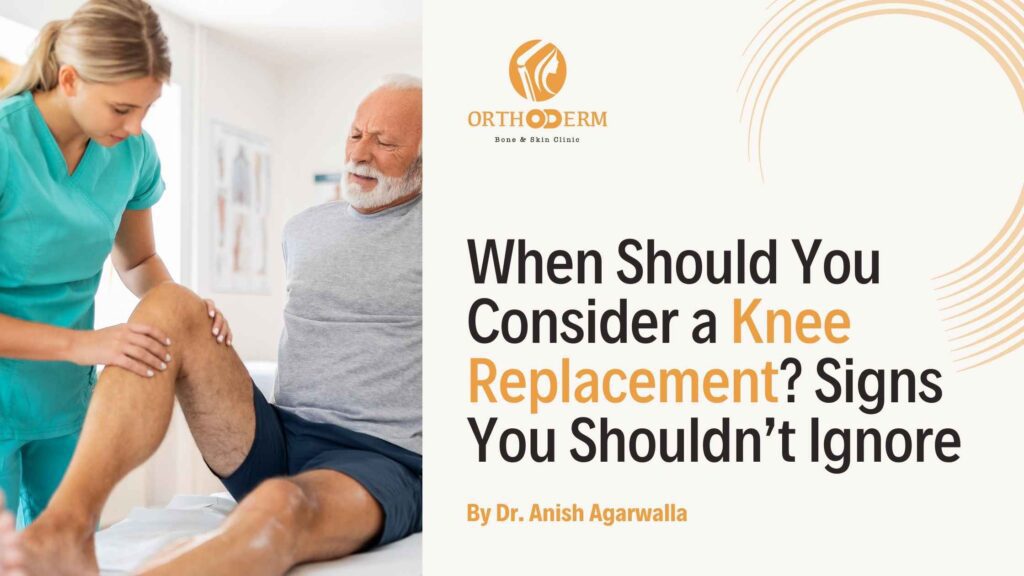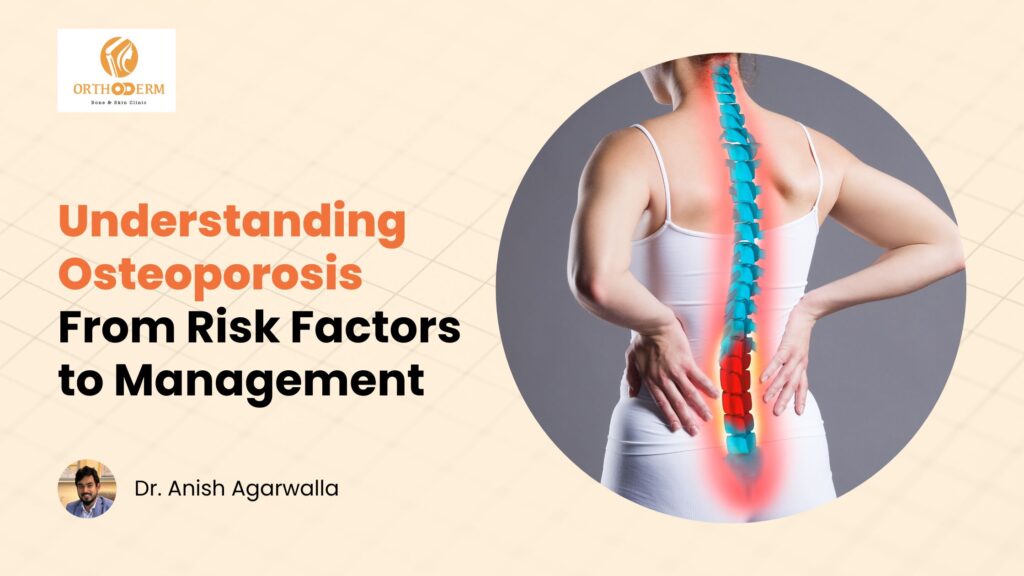As an Orthopedist, I’ve dedicated my career to helping individuals overcome the challenges posed by joint pain and mobility issues. One of the most common concerns I encounter is knee pain, a condition that can significantly impact daily life. While many people experience knee pain, it’s crucial to understand when it’s time to consider a more serious intervention: knee replacement surgery.
In this blog post, we’ll delve into the signs and symptoms that indicate you may need a knee replacement. We’ll explore the impact of knee pain on your overall well-being and discuss the benefits of timely intervention. By the end of this article, you’ll have a clearer understanding of when to seek professional help and make informed decisions about your knee health.
Understanding Knee Pain: A Common Problem
Knee pain is a prevalent issue, particularly in India. It can stem from various causes, including:
- Osteoarthritis: This degenerative joint disease wears down the cartilage in your knee joint, leading to pain, stiffness, and reduced mobility.
- Rheumatoid Arthritis: An autoimmune disorder that causes inflammation in the joints, including the knees.
- Injuries: Traumatic injuries like ligament tears or fractures can damage the knee joint.
- Gout: A type of arthritis caused by a buildup of uric acid crystals in the joints.
The impact of knee pain extends beyond physical discomfort. It can significantly affect your daily activities, limiting your ability to work, exercise, and enjoy hobbies. Moreover, chronic knee pain can lead to psychological distress, including anxiety and depression.
Signs That You Might Need a Knee Replacement
If you’re experiencing persistent knee pain, it’s essential to pay attention to the following signs that may indicate a need for knee replacement surgery:
- Persistent Pain: If your knee pain persists despite conservative treatments like medication, physical therapy, and rest, it may be a sign of underlying damage.
- Limited Mobility: Difficulty in performing daily activities like walking, climbing stairs, or getting in and out of a chair can signal a significant decline in knee function.
- Joint Stiffness: Persistent stiffness, especially in the morning, can hinder your mobility and quality of life.
When to Consult an Orthopedist
If you’re experiencing any of the signs mentioned above, it’s crucial to consult an Orthopedist. Early diagnosis and timely intervention can help manage your knee condition and improve your quality of life. Consider seeking professional advice if you:
- Experience persistent pain that doesn’t improve with conservative treatment.
- Face significant limitations in your daily activities.
- Notice a rapid worsening of your knee condition.
- Observe a visible deformity in your knee.
Simple Ways to Monitor Knee Health
While knee replacement surgery may be necessary in certain cases, there are proactive steps you can take to maintain knee health and delay the need for surgery. Here are some simple tips:
- Regular Exercise: Engage in low-impact exercises like swimming, cycling, and yoga to strengthen the muscles surrounding your knee joint.
- Healthy Weight: Maintaining a healthy weight can reduce stress on your knees and alleviate pain.
- Proper Footwear: Wear comfortable shoes with good arch support to minimize strain on your knees.
- Avoiding Strenuous Activities: Limit activities that put excessive stress on your knees, such as running on hard surfaces or heavy lifting.
By incorporating these habits into your lifestyle, you can significantly improve your knee health and reduce the risk of future complications.
Conclusion
Knee pain can significantly impact your quality of life. While conservative treatments can alleviate symptoms in many cases, knee replacement surgery may be necessary for individuals with severe knee damage.
Remember, early diagnosis and timely intervention are crucial to managing knee pain effectively. By taking proactive steps to monitor your knee health and seeking professional advice when needed, you can improve your mobility and enjoy a pain-free life.
Don’t let knee pain limit your life. Schedule a consultation with me today to discuss your options and regain your mobility.
FAQ: Knee Pain and Replacement
Here are some common questions that Indian patients often ask about knee pain and potential replacement surgery:
1. What are the common causes of knee pain in India?
- Knee pain can arise from various factors, including osteoarthritis, rheumatoid arthritis, injuries, and gout.
2. How can I relieve knee pain at home?
- You can try simple home remedies like applying ice packs, resting, and taking over-the-counter pain relievers. However, for persistent pain, it’s essential to consult a doctor.
3. What are the signs that my knee pain is worsening?
- Signs of worsening knee pain include increasing pain, swelling, stiffness, and difficulty in performing daily activities.
4. Who is a good candidate for knee replacement surgery?
- Individuals with severe knee pain, limited mobility, and significant joint damage may be suitable candidates for knee replacement surgery.
5. What is the recovery time after knee replacement surgery?
- Recovery time varies from patient to patient. While patients are invariably allowed to walk the next day after surgery with the help of a walker, patients start walking without the help of a walker within 10 days – 20 days depending on their exercise routine.
6. Is knee replacement surgery painful?
- Knee replacement surgery is done under anesthesia, so it’s not painful. After surgery, the patient may experience some pain for a week while doing exercise which can be easily managed with simple medications.
7. How long does a knee replacement last?
- With proper care, a knee replacement can last 15-20 years or even longer.
8. How can I monitor my knee health at home?
- You can monitor your knee health by paying attention to pain levels, swelling, stiffness, and limited mobility.
9. When should I consult an Orthopedist?
- You should consult an Orthopedist if you experience persistent knee pain, significant limitations in daily activities, or rapid worsening of your knee condition.
Remember, it’s crucial to seek professional advice for any persistent knee pain. Early diagnosis and timely intervention can help manage your condition effectively.



